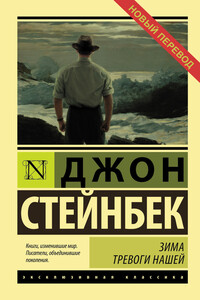Once there was a war | страница 19
We have not yet a singing Army nor any songs for a singing Army. Synthetic emotions and nostalgias do not take hold because the troops know instinctively that they are synthetic. No one has yet put words and a melody to the real homesickness, the real terror, and the real ferocity of the war.
SOMEWHERE IN ENGLAND, June 25, 1943—We are coming close to land. The birds picked us up this morning and a big flying boat circled us and then darted away to report us. There has been no trouble at all, and if, on the bridge, the enemy has been reported, we do not know it. The word sifts down from the bridge that we shall land tonight. The soldiers line the rails and report every low-hanging cloud as a landfall. Now that we are near and the lines of our approach are narrow, the danger is greater. The ship swerves and turns constantly. These waters are the most dangerous of all.
The men are reading a little booklet that has been distributed, telling them how to get along with the English. The book explains language differences. It suggests that in England a closet is not a place to hang clothing, that the word “bloody” should be avoided, that a garbage can is a dust bin, and it warns that the English use many common words with a meaning different from what we assign to them. Many of our men find this very funny and they go about talking a curious gibberish which they imagine is a British accent.
A light haze shrouds the horizon, and out of it our Spitfires drive at us and circle like angry bees. They come so close that we hear the fierce whistle of their wings. For a long time they circle us and then go away, and others take their place.
In the afternoon land shows through the haze and, as we get closer, the neat houses and the neat country, orderly and old. The men gaze at it in wonder. It is the first foreign place most of them have ever seen and each man says it looks like some place he knows. One says it looks like California in the springtime of a wet year. Another recognizes Vermont. The men crowd to the portholes and the rails.
The troopship moves into a harbor and drops her anchor. She is surrounded on all sides by shipping and by naval units. The men will go ashore in lighters, but not yet, for disembarkation is, if anything, more complicated than embarkation. Men can easily be lost or mixed with the wrong units.
The night comes and in the staff room officers gather and wait until they are assigned the transportation for their men. It takes a good part of the night. At an exact time each unit must be in an exact place, where a lighter will be waiting to take them on. The troop trains will be waiting ashore. It has been a perfect crossing. No trouble, no sickness, no attack. The ship’s officers show the strain. They haven’t slept much. After a few voyages they must be relieved. The responsibility is too great for a man to bear for too long a stretch.






